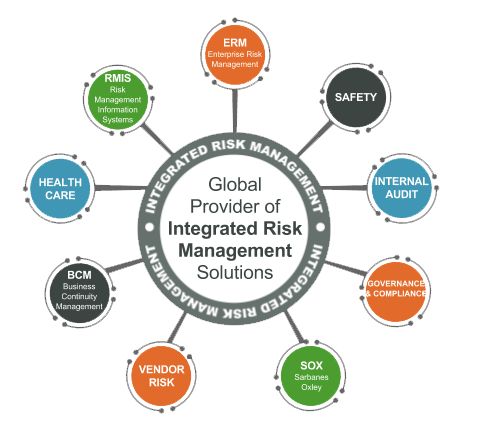In today’s dynamic business environment, risks are inevitable. They can come from various sources such as financial volatility, cyberattacks, geopolitical instability, supply chain disruptions, and natural disasters, among others. Therefore, it’s essential for organizations to adopt a proactive approach to managing risks rather than reacting to them when they occur. This is where integrated risk management comes in. In this article, we’ll look at what an integrated risk management approach is, why it’s important, and how organizations can implement it successfully.
Definition of Integrated Risk Management
Integrated risk management (IRM) is a holistic approach that involves the identification, assessment, mitigation, and monitoring of potential risks across an organization’s entire enterprise. It involves integrating risk management practices into an organization’s overall strategy and culture, rather than treating risks in silos. IRM aims to identify and manage risks proactively rather than reactively.
Importance of IRM
Implementing an IRM approach is essential for organizations in today’s volatile business environment. It helps businesses to:
1. Identify risks before they occur
2. Mitigate potential losses
3. Reduce overall business costs
4. Improve decision making
5. Enhance reputation
6. Foster a risk-aware culture
7. Ensure regulatory compliance
8. Protect stakeholders’ interest
IRM Framework
An IRM framework helps organizations to establish a standardized approach to risk management. It involves five essential steps:
1. Identify the risks
2. Assess the risks
3. Develop a risk response plan
4. Implement the risk response plan
5. Monitor and review the plan
IRM Tools
IRM tools enable organizations to automate the risk management process and provide real-time risk information. Some of the IRM tools include:
1. Risk assessment software
2. Risk modeling software
3. Business continuity software
4. Compliance management software
5. Enterprise risk management software
Implementing IRM
To implement an IRM approach, organizations need to follow these steps:
1. Establish a risk management team
2. Identify the risks
3. Assess the risks
4. Develop a risk response plan
5. Implement the risk response plan
6. Monitor and review the plan regularly
7. Improve the plan continuously
Best Practices
To implement an effective IRM approach, organizations need to adopt the following best practices:
1. Involve all stakeholders in the risk management process
2. Foster a risk-aware culture
3. Ensure regular communication and collaboration
4. Use technology-enabled IRM tools
5. Partner with external experts
6. Continuously monitor and evaluate the IRM approach
7. Update the approach as needed
You might find these FREE courses useful
- Create a Project Management Dashboard
- Top Project Management: The Basics For Success
- Top Project Management: Life Cycle And Project
- Top Project Management Certification Google Courses
- Top Project Management Courses – Learn Project
- Top Project Management Principles And Practices
Conclusion
In conclusion, an integrated risk management approach is essential for organizations to manage different types of risks proactively. It involves a holistic approach to identifying, assessing, mitigating, and monitoring risks across the entire enterprise. Implementing an IRM approach requires a standardized framework, effective tools, and adoption of best practices. IRM helps organizations to reduce the business cost, improve decision making, foster a risk-aware culture, and protect stakeholders’ interests.
